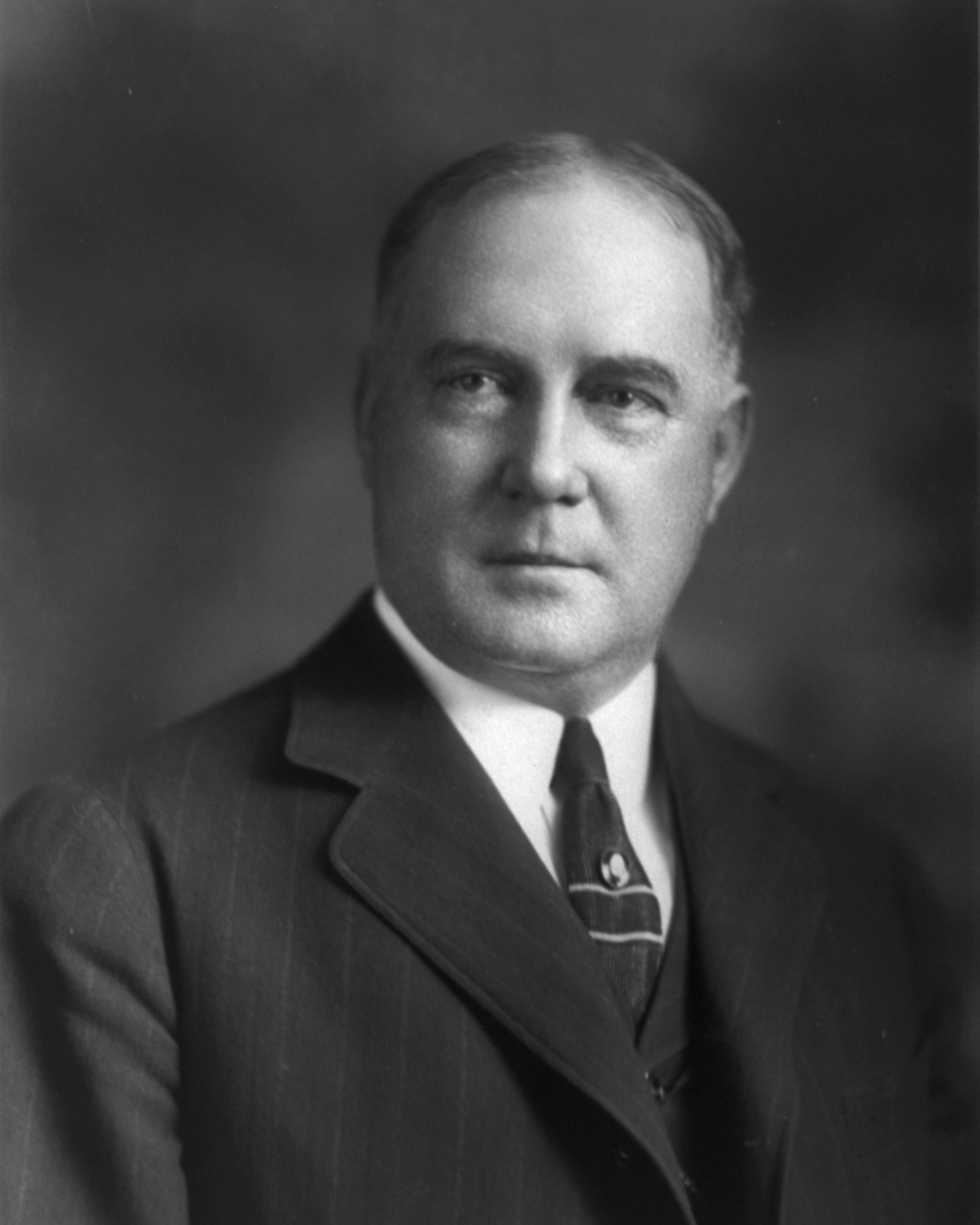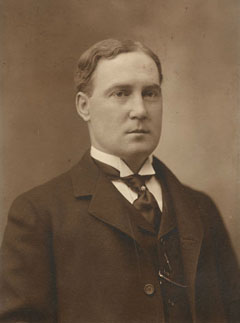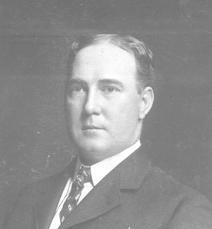Andrew Jackson Montague
Andrew Jackson Montague (* October 3, 1862 in Lynchburg, Virginia; † January 24, 1937 in Urbanna, Virginia ) was an American politician and from 1902 to 1906 Governor of Virginia. Between 1913 and 1937 he represented his state as a delegate in the U.S. Congress.
Early years and political rise
The son of politician and jurist Robert Latane Montague first visited public and private schools in his home and then studied until 1882 at Richmond College, from which today's University of Richmond was built. After a subsequent law studies at the University of Virginia in Charlottesville, he was admitted to the bar in 1885. Then he began to Danville to work in his new profession.
Montague was a member of the Democratic Party. In 1892, he supported the presidential campaign of Grover Cleveland, who after winning the election for Attorney General appointed him in 1893 for the Western District of the State of Virginia. Montague held that post until 1898. This year, he has been Attorney General of Virginia. This mandate he held until 1902.
Governor of Virginia
In 1901, Andrew Montague was elected governor of his state. He took office on 1 January 1902. As governor, he pushed for an improvement of the education system and the road network. He advocated the establishment of a Road Agency ( Highway Commission ), which actually took place two months after the end of his term. Under his rule, the prefix principle was introduced at elections in 1905 in Virginia. In addition, at that time the labor laws were improved by employers were made responsible for certain work-related accidents. The serving of alcoholic beverages was strictly licensed and monitored. In 1904, Montague was a delegate to the national convention of his party. However, the governor felt politically by its intra-party opponent, U.S. Senator Thomas S. Martin, severely hampered in its political development. The two men had long been at odds politically. Martin controlled the Democratic Party in Virginia and Montague did not arrive to its dominance. For this reason, he was a candidate in 1905 even against Martin for a seat in the Senate. This election won incumbent Martin and Governor Montague suffered a bitter defeat.
More career
Montague's term as governor ended on 1 February 1906. Later that year, he was U.S. ambassador to the held in Rio de Janeiro Conference of American States, and he again worked as a lawyer in Richmond. From 1901 to 1906 he was Dean of the Law Faculty of Richmond College. Between 1909 and 1910 he was a delegate to the International Conference on Maritime Law in Brussels. Andrew Montague was also curator of the Carnegie Institute and the Carnegie Foundation for the Preservation of the International Peace ( Carnegie Endowment for International Peace ). In this foundation he remained until 1935 in major offices in addition to his political activities actively.
Montague House of Representatives
In 1912, Andrew Montague was elected to the U.S. House of Representatives. He entered this mandate on 4 March 1913 and could exercise until his death in 1937 after eleven elections. In 1917 he was president of the American Association for the resolution of international conflicts. From 1920 to 1924 he was also president of the American Peace Society (American Peace Society ). In 1926 he was a member of a Committee of Inquiry dismissal of the charge of the eastern part of the State of Illinois Federal Judge George W. English. From 1930 to 1935 Montague was President of the American Section of the Inter-Parliamentary Union. Andrew Montague died on 24 January 1937., With his wife Elizabeth L. Hoskins he had three children.









